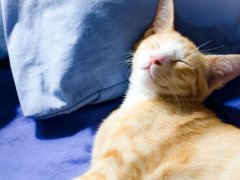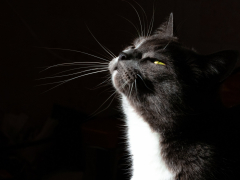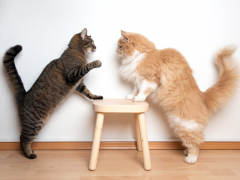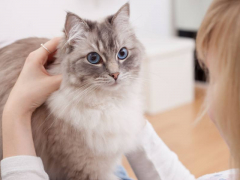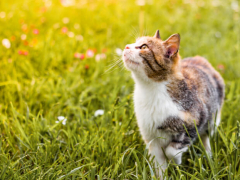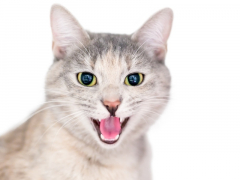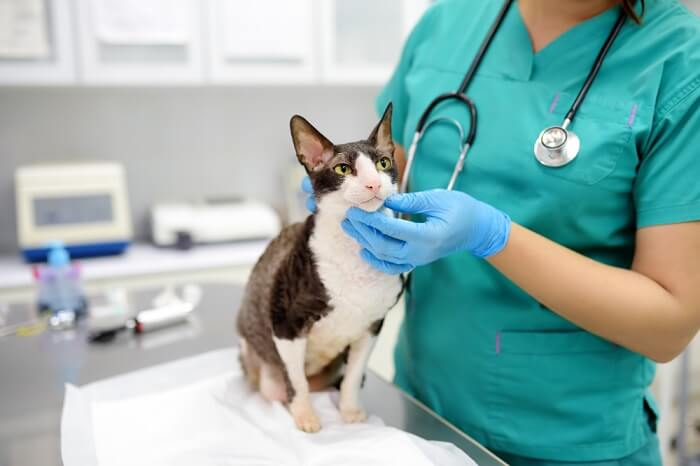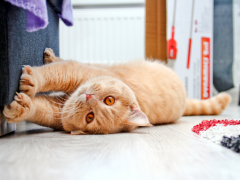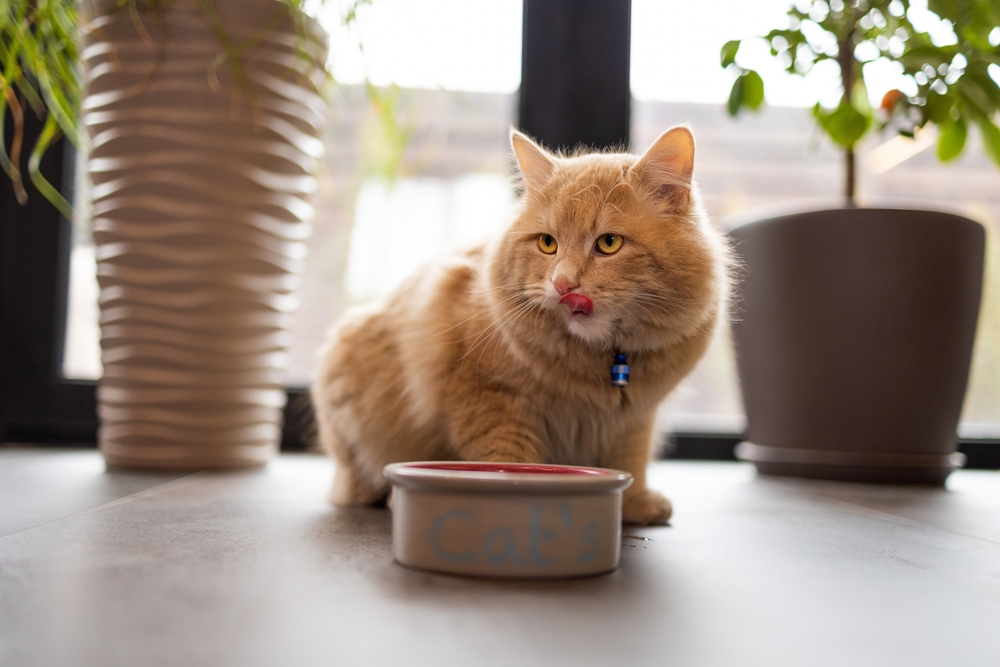
Yanya / Shutterstock
While burping may be a normal bodily function in humans, it may seem odd to imagine our pets doing the same thing. So can cats burp? If so, does that mean they just loved their meal or is there an underlying digestive issue?
In short, yes, cats can burp—but it’s pretty uncommon. In this article, we’ll cover the causes of cat belches and what you should do if your cat burps often.
Cats burp when there is excess air in the upper digestive tract. Causes range from eating and drinking too quickly to an underlying health condition.
If your cat burps regularly, schedule a vet visit to rule out any health problems.Key Takeaways
What Causes a Cat to Burp?
Burping in cats occurs due to air in the upper digestive tract, which includes the esophagus, stomach, and early small intestine.
Cats don’t naturally build up air in their stomachs because they predominantly breathe through their noses. They also are unlikely to swallow extra air while eating and taking treats.
However, burping in cats does happen occasionally, and it could be caused by a few different things.
1. Eating or Drinking Too Quickly
If your cat guzzles down their food—perhaps it’s their favorite or they’re really hungry—they’re more likely to take in air as they eat. This air that enters their esophagus and stomach can make its way through their gut and pass as gas. However, if there’s a significant amount, it can come up as a burp.
2. Cat Burps After Eating
When kittens are bottle-fed or weaning, it’s common for them to take in more air. This is because they’re learning for the first time to feed effectively. Therefore, you might notice burping more frequently in your kitten than you do in an older cat.
It’s not just young kittens who are learning to feed. Adult cats who have trouble eating due to pain, infection, or other mouth problems may swallow more air, as well.
3. Nasal Congestion
Cats prefer to breathe through their nose, but if they are congested, their nostrils are blocked, or their nose is swollen, they may be forced to breathe through their mouth. Sometimes, excess air gets trapped in the stomach, waiting to come up as a burp.
4. Gastroenteritis
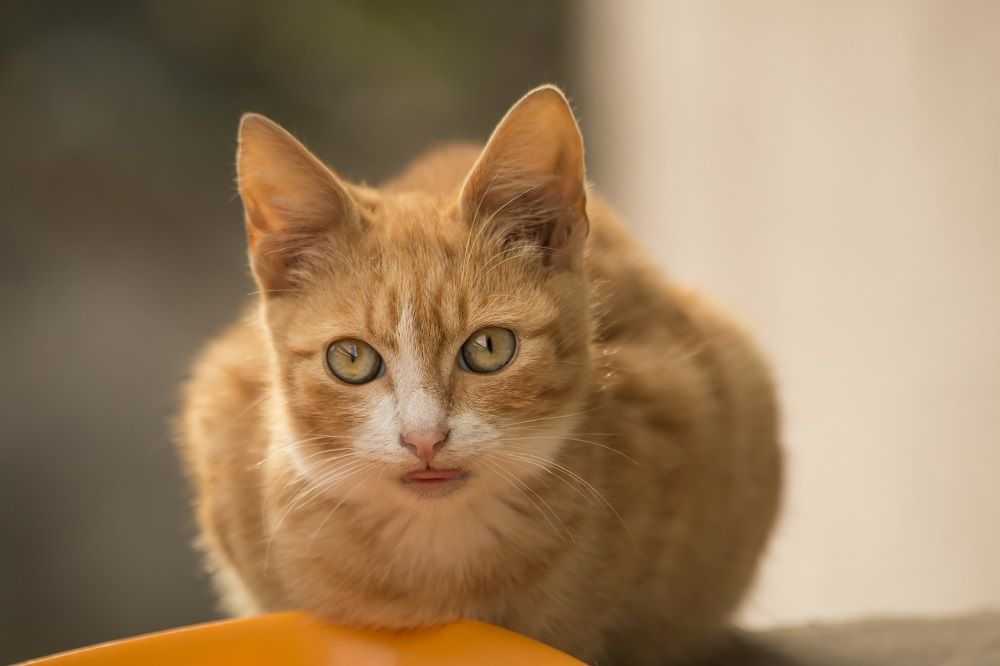
Burping in cats is uncommon, and typically points to an issue with their health or eating habits. Shutterstock
Gastroenteritis is the inflammation of the digestive tract. Any inflammation in the gut can make your cat a little out of sorts. Symptoms may include vomiting, diarrhea, nausea, and gas in the form of burping or flatulence.
5. A Change in Diet
Many cats are sensitive to changes in their diet and do best when their cat food is kept consistent. If you change the brand, flavor, or consistency of your cat’s food suddenly, without doing a gradual transition, you might notice symptoms like diarrhea, vomiting, or gas. You might also notice these symptoms if you regularly give treats or human food.
6. Inflammatory Bowel Disease
Inflammatory bowel disease (IBD)can be triggered by ingredients in your cat’s food. This type of tummy upset is caused by your cat’s digestive system reacting to food allergens (the most common are beef, chicken, and dairy).
If your cat has IBD, you may need to put them on a prescription hypoallergenic diet or they may require medication.
7. Hairballs
If your cat is prone to hairballs, you might notice them having fits of retching and coughing before bringing up a sausage-shaped clump of matted fur and debris. The process of hacking up a fur ball might make your cat more prone to swallowing some air, meaning that they burp afterward.
8. Parasites
Heavy burdens of intestinal parasites, like roundworms and tapeworms, can irritate your cat’s gut. This irritation may lead to a gut upset, which means there’s more chance of your cat developing indigestion and excess gas.
When To Call a Vet
An occasional burp from your cat is unlikely to be related to medical issues. However, in certain cases, it’s best to get them checked out by your veterinarian to make sure they don’t have an underlying health problem. Schedule a vet visit if:
- You hear or see frequent burping, or
- Your cat has suddenly started burping, or
- They have other symptoms, such as lethargy or weight loss.
Frequently Asked Questions
What does it mean when my cat burps?
Cats don’t often burp, but an occasional burp can be a normal response to gorging on food or having a blocked nose. If your cat has suddenly started burping or seems unwell, you should take them to the veterinary clinic for a checkup.
Can cats burp or fart?
Just like humans, cats get gas. Depending on where the gas is in the gastrointestinal tract, it may leave the body as a burp or as flatulence.
Do cats hiccup or burp?
Cats can hiccup and burp, although hiccuping is more common than burping.
Do cats burp after drinking water?
Cats usually drink water reasonably slowly and calmly compared to dogs, so burping after drinking water is uncommon for them. However, if they are very thirsty and drink very quickly, they may burp afterward.
